Pastor’s Corner (11/18/2021)
“It is your decisions, and not your conditions, that determine your destiny.” Tony Robbins
In a recent “Minute with Maxwell,” John Maxwell shared the above quote. As Maxwell pointed out, we cannot control the conditions in our lives. However, we can choose to be “victims” or “victors.” His reflections really hit home for me and got me thinking about my life. I realized during a recent Ministry Cabinet meeting that I have never shared a lot of details about my visual impairment. I have been legally blind since birth and I have a congenital and hereditary eye disease called “Congenital Cataracts.” Throughout my life I have felt as though many people tried to define me by this particular condition. The attempts to treat me like others began when I was a small child and continue. These battles have left me a bit defensive and perhaps overly eager to prove my abilities. I am happy to talk with anyone about my situation, but I generally do so in response to questions.
I particularly struggle with this dynamic when I am seeking a call. Although I have now been ordained for over 34 years, it seems that I have to constantly prove my ability. When I began my journey toward ordination, I still remember being asked “how can you preach to people you can’t really see?” As I am wont to do, I responded with a bit of humor by saying “I suspect not being able to see the congregation might be to my advantage.” Throughout my ministry I had to take extra steps to prove my ability to those who wanted to define me by my condition and not by my decisions.
I am so grateful to FCC for your willingness to “see” me for my abilities and not my dis-abilities. However, during our recent Cabinet meeting, I realized that I have never really shared what my “blindness” means. I use the term “blind” because I do many things with “alternative techniques;” I use other resources besides sight. The word “blind” often carries negative connotations, but for me I use it as a descriptive word that more accurately reflects my lack of sight. Since I have been blind all my life, I have nothing to compare it to, so when people ask me how much I can see I have no point of reference. The only way I know to describe it is to tell you that my best corrected acuity is about 20/150. Before the onset of Glaucoma 5 years ago it was a bit higher. This is in my left eye, which is my good one. That means, what a sighted person can see at 150 feet, I have to be about 20 feet away to see the same thing.
I can read print on a limited basis and that has to be enlarged. You may be asking “what about your right eye?” Well, I only have “counts fingers” in that eye. The best I can see is the number of fingers held up by my eye doctor only inches from my face. With such limited vision, I do a number of things using the “alternative techniques” I mentioned earlier. Things that most people do visually I do in some other way. I live in a wonderful time in history because we have the advantages that come with modern technology. I know many people hate the technology that is so much a part of our lives, but it makes many things possible for me that would not be possible otherwise. This is why I use an iPad during worship and in various meeting. I put various documents, including our worship material and my meditation, on the iPad which gives me access to printed material that I can adjust as needed. My iPad, large print, and my Closed Circuit TV (CCTV) are ways I read print. I also read audio books and I am working on re-learning Braille.
I am fortunate because the Nebraska Commission for the Blind has assisted me in procuring various items that assist me in my ministry. They recently purchased my iPad and a program for both my computer at home and in the office that provides speech and large print. Another new piece of technology for me is my iPhone. I also have speech which makes it easier to access texts and other information.
As you might guess, I use a computer a great deal personally and professionally. I get a lot of email and I do my best to keep on top of it all. However, I know there are times I have missed important emails. I have struggled to find a good solution for this issue and have discussed it with the Personnel Team. If you have sent me an email and I fail to respond in a timely fashion, particularly if it is urgent or time sensitive, please send me a text and let me know you need an answer right away. Also, if something is urgent, I would welcome a note in the subject line that says something like “URGENT” or “TIME SENSTIVE.” Hopefully, with your help and my additional technology I can lessen the probability of missing something important.
Another challenging issue for me is the fact that I am unable to drive a car. I have worked with this reality all of my life and I have developed some “alternative techniques” for this part of my life, too. Instead of driving I walk, take a bus, or call a Lyft or Uber. I have also had to ask someone at the church to give me a ride. This latter “alternative technique” is often one of the most challenging components of my life and ministry. Thanks to the generosity of others I am able to make the visits that are an important part of ministry. It is also my hope that in helping me do this important part of my ministry, it facilities the ministry of others. Thankfully, we are all called to ministry and service which includes visitation.
One of the challenges I face that often puzzles others is the fact that I am often unable to recognize people visually. Instead, I rely on other clues: the sound of people’s voices, the clothes people wear, the way people move or stand. This causes embarrassment for me at times because I do not always recognize people right away. I suspect there are times I have hurt people’s feelings or left others thinking I do not really know them or care about them. I usually make a joke out of my failure to recognize people, but I feel badly every time it happens. I suspect it happens more than I realize. If so, I apologize and hope my explanation here helps. One nice thing about serving a well-established congregation is the fact that people tend to sit in the same place every Sunday. So, it’s your bad if you move!
Throughout my years of ministry, I have often wondered why God chose me to serve in this way. I have come to suspect that the conditions of my life have given me a sensitivity to others that I might not otherwise have. I also hope that others have learned that it is okay to embrace the conditions of our lives, and in so doing we are invited to be considerate of others and their needs. I hope and pray that God continues to use me, challenges and all. I know God uses us all and invites us to be part of God’s mission in the world. We continue to be invited to embrace the decisions of our lives and not be defined by our conditions.
With a grateful heart,
Pastor Karen


